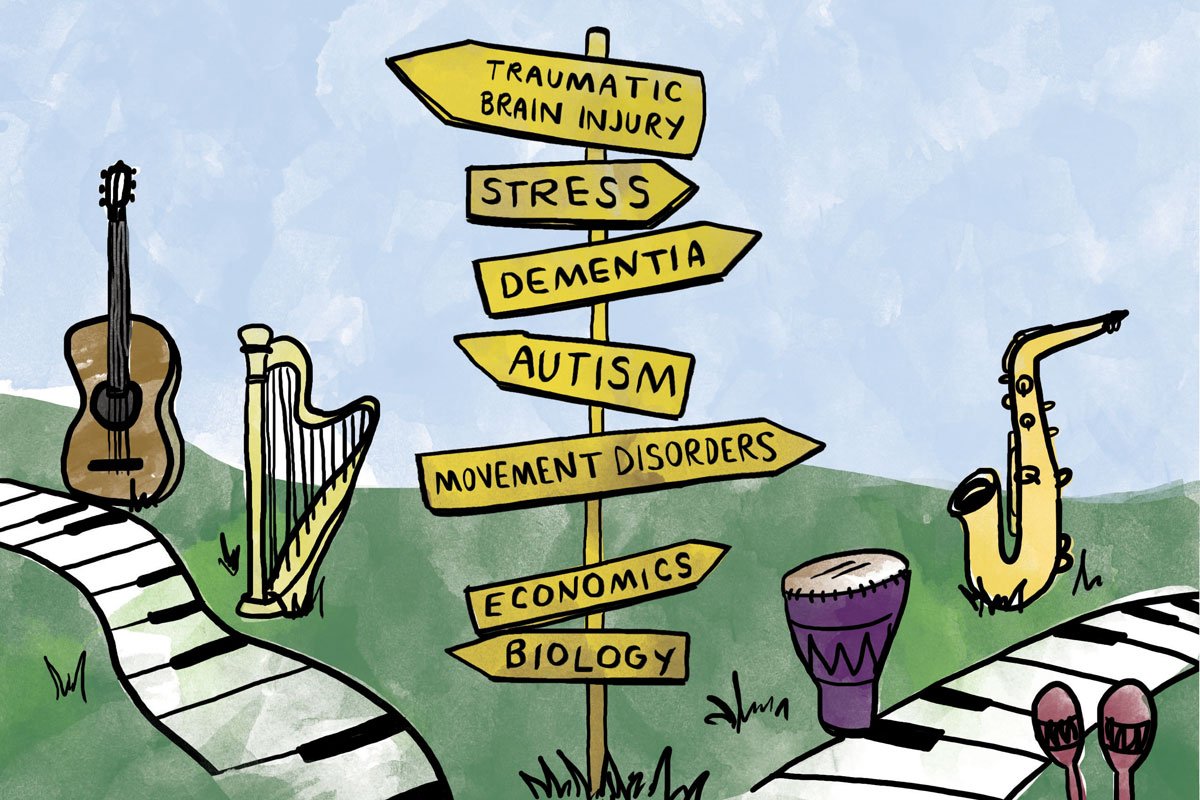Music therapy has been a source of healing for many years with the first published article appearing in 1789! Therefore, it isn’t just another “trend,” as there has been decades of research and studies conducted to support its effectiveness.
Below are the 5 things you should know if you think this tried and true form of therapy sounds beneficial.
Image from Inside Music Schools' Website: "Music Therapy: What Is It, And How Does It Make People Heal?”
1. Anyone Can Seek Out Music Therapy Services for Any Reason
A common assumption about any sort of therapy is that you should have something “wrong” with you to seek it out or begin a treatment process. Music therapy can be beneficial to anyone who has a goal they want to achieve.
Music therapists are trained to help anyone conceptualize, plan, and progress toward their goals using music to achieve them.
Common goals for those in music therapy are to strengthen communication, physicality, emotionality, and cognition. Even goals as simple as teaching a child a song to remember their address and phone number are common!
Image from Northwestern University’s website: “The Power and Science of Music Therapy”
2. Music Therapy is an Accredited Health Care Profession
There is a massive difference between a board-certified music therapist, and someone who is using music in a therapeutic way.
Music is therapeutic, no matter the setting in which it is presented. However a music therapist goes through intense training throughout college and beyond to truly practice music as a therapy.
Not only do music therapists have a strong musical background, they are also trained to be perceptive of situations, plan how music will help their clients achieve their goals, study how the brain and body react to music, and adjust musical experiences to best serve those they are working with.
Music therapists also frequently work on treatment teams with other professionals like physical therapists, occupational therapists, speech pathologists, physicians, and nurses to create well-rounded care for their clients. Music therapy can also be prescribed by a doctor, just like other types of therapy!
3. Musical Knowledge Isn’t Required
Another assumption about music therapy is that one must have a background in music to be able to fully participate in a session.
Not only are music therapists trained in formal musical backgrounds and the scientific methods behind the therapy, but they are also trained to create positive musical experiences for even the most non-musically inclined person.
The point of music therapy is not to become a music performer or to receive training on a particular instrument. It is for those who have some sort of connection to music to then use that connection to make the changes they want to see in their life. That’s not to say that you won’t pick up some musical skills and abilities throughout the process, it just won’t be the focus.
4. It’s More Than Just Singing or Playing Instruments
Music therapy is an extremely diverse field with many different areas of thought and ideas about how best to use music to serve a population.
Music therapy can be broken down into 4 different experiences: receptive, recreative, improvisatory, and composition.
Receptive experiences in Bonny Method of Guided Imagery are all about listening to classical music and using it to explore thoughts and emotions that arise. This method doesn’t require any singing or playing at all but is just as effective.
Recreative experiences are playing pre-composed songs while improvisatory focuses on creating new, spontaneous music. Singing and playing small instruments are often the most accessible ways for a music therapist to connect with a client using the recreate and improvisatory methods.
Lastly, in a composition experience, a music therapist would help a client create their own music.
A well-trained music therapist will provide a wide variety of musical experiences for the client, based on what they excel at and what they are interested in.
More information about each of the 4 types of experiences/interventions can be found here.
5. There Are More Than Just The Emotional Benefits
It’s easy to associate the word “therapy” with mental health. However, the goal areas in which one may be working toward aren’t solely relating to emotional and mental wellness.
Music has an amazing ability to increase our communication with others, improve memory, create positive environments, strengthen motor skills and so much more.
Music therapists can provide such a wide range of treatment options because of their intense training and the fact that they work so closely with other professionals. Music therapy does not exist in a vacuum, it is an inspired, planned and coordinated effort by many professionals to provide increased wellness in all areas of life.
The greater Indianapolis area has many incredible music therapy services and programs that can help you on your journey of wellness. Click here to get started.
-Lauren Nielson, Instructor at Vibe Music Academy









